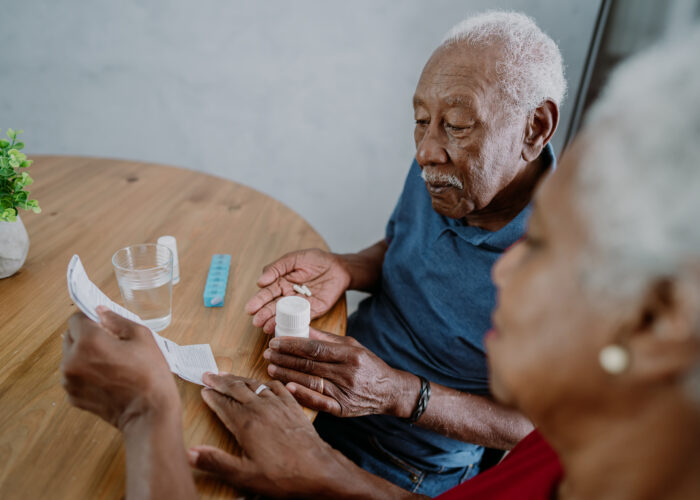Partners: PocDoc, NWL ICB
Alignment with three shifts: Sickness to prevention, hospital to community, analogue to digital

Unwarranted service variation and fragmentation in NWL often means that detection of CVD conditions is often completed in isolation, impacting patient experience and outcomes. Community detection can reach patients and residents who often don’t engage with NHS services and build a full picture of those most at risk of CVD in NWL, enabling them to access treatment earlier and manage their condition appropriately – ultimately reducing the number of CVD-related deaths.
PocDoc is a novel point-of-care cholesterol test and digital platform that combines rapid diagnostic testing with access to healthcare pathways. PocDoc delivers heart health insights, measuring cholesterol, heart age, BMI, and more within 10 minutes to give personalised health advice instantly, including through a QRISK3 score. By connecting patients with their own data, support and clinical pathways, patients are empowered to make positive lifestyle changes.
We secured funding to test PocDoc at three Implementation Sites – starting with Kensington and Chelsea, and Westminster – to provide point-of-care testing in the community. In preparation for phase one testing with residents, we tested the innovation with 31 stakeholders from our NWL NHS workforce with positive feedback on the benefits of quick and easy testing and provision of instant results.
The first Implementation Site went live in Spring 2025, with testing for 200 residents. We will iterate and scale to 3-4 more sites with approximately five staff members trained per site, and reaching ~2,000 residents in total.
We anticipate that community-testing in this way is likely to prevent a minimum of 2.6 CVD events per cohort, totaling savings of over £46k (based on a cost to the NHS per stroke of +£17k). We anticipate this phase one investment will prove the concept for scale and demonstrate a longer-term return (£1.49 for every £1.00 invested).
In parallel, some of the Implementation Sites will also test KardiaMobile, a solution that detects Atrial Fibrillation or abnormal heart rhythm to provide a more comprehensive health check for residents. We plan to engage more communities around using PocDoc and KardiaMobile as we expand implementation in 2025/26, enabling holistic community-based CVD screening.



